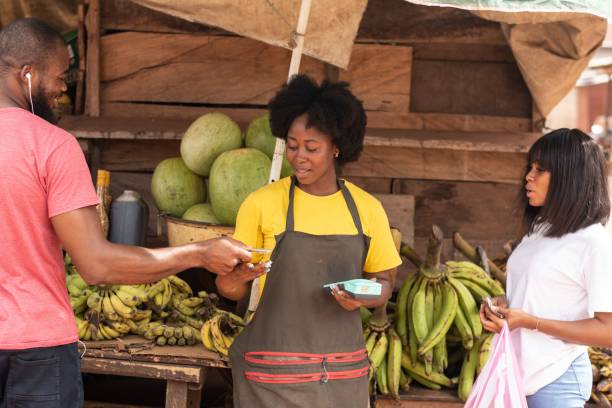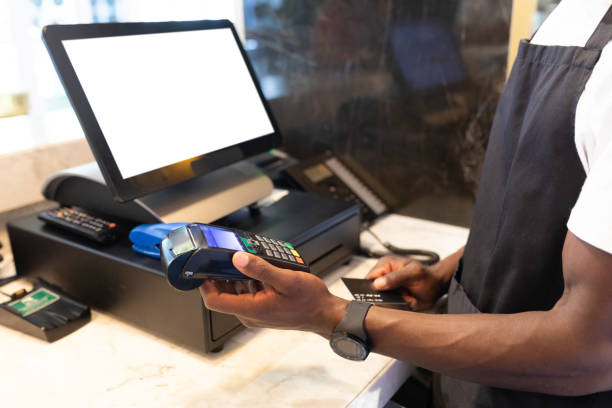Africa’s Payments Industry Set to be Overrun by Fintechs

The fintech payment frenzy is going global, and Africa is latching onto it. So far this year four of the continent’s fintech firms have reached or exceeded billion-dollar valuations, more than doubling Africa’s population of “unicorns”.
Globally, the unicorn status is fast becoming an easy number to attain for fintechs.
OPay, a mobile payments company, became a unicorn in August, after raising $400m from investors including SoftBank, a Japanese firm. Other recent unicorns include Flutterwave, a Nigerian startup that simplifies payments for businesses; Wave, a Senegal-based startup running a mobile money network; and Chipper Cash, which offers peer-to-peer payments.
As foreign investment pours in, Africa’s fintech firms are expanding both across the continent and into new services. A trend that does not seem to be slowing down.
Why Africa?
Africa is an obvious choice for fintech investors given the size of the market. Investors are betting that young African talent can innovate its way out of the region’s most pressing financial problems faster than legacy firms can. By 2025 the continent will be home to 1.5 billion people, most of whom will have grown up in the era of the internet.
Nigeria, which has received almost two-thirds of Africa’s fintech investments this year, has a young and entrepreneurial population. But more than half of Nigerians do not have a bank account. Across the continent, digitally literate unbanked (and underbanked) people, who have long been largely ignored by conventional lenders, are instead turning to the upstarts.
In Ivory Coast, for example, 94% of pupils’ school fees were being paid using mobile money by 2014. This makes it fertile territory for companies like Wave, which moved into the country in April.
One reason for firms to expand geographically stems from the African Continental Free Trade Area, a deal that was first agreed on in 2018 and which has now been ratified by 38 countries. Part of the goals of the Free Trade Area is to make Africa’s markets more connected in the future.
The Pan-African Payment and Settlement System was launched in September 2021 as part of the deal, to make the region’s many systems work better together. As a consequence, investors are backing firms with ambitions that extend beyond their home countries. Flutterwave had reached more than 33 African countries by the time of its latest funding round this year.
Looking Beyond Payment Markets and Africa Fintech
For the biggest African fintechs, simple payments are only an entry point. OPay was once a ride-hailing app before transitioning into payments. It now offers interest-free credit that is easier for workers in informal jobs to get than bank loans. The firm, now worth around $2bn, is about as valuable as Nigeria’s biggest bank.
Chipper Cash is taking its vision beyond Africa. It lets Nigerians in Britain send money home instantly and could revolutionize transfers in sub-Saharan Africa, which has some of the highest remittance costs in the world.
Banks may not be the only incumbents feeling threatened by the newcomers. In some cases, telecom providers, which also provide mobile money, are drastically lowering their fees as competition in payments hots up. The battle leaves regulators struggling to control an industry that is rapidly evolving. Wave is moving through the continent at a pace and is now available in four countries.
Despite a bumper year, Africa’s biggest startups are still relatively young compared to fintechs in the rest of the emerging world. Getting payments right in such a large market could unlock a wealth of opportunities. Iyin Aboyeji, a co-founder of Flutterwave and an investor, says international venture capitalists are realising that Africa “looks a little bit like China in the 1970s. Folks are hoping to get in early and do some good deals.”
The emergence of rigorous cross-continental competition this 2021 shows that African fintech is nonetheless maturing and that the world is at last beginning to pay attention.


What i dont understood is in reality how youre now not really a lot more smartlyfavored than you might be now Youre very intelligent You understand therefore significantly in terms of this topic produced me personally believe it from a lot of numerous angles Its like women and men are not interested except it is one thing to accomplish with Woman gaga Your own stuffs outstanding Always care for it up
My brother was absolutely right when he suggested that I would like this website. You have no idea how much time I spent looking for this information, but this post made my day.
Your article helped me a lot, is there any more related content? Thanks! https://www.binance.com/en/register?ref=PORL8W0Z
Thank you for your sharing. I am worried that I lack creative ideas. It is your article that makes me full of hope. Thank you. But, I have a question, can you help me? https://www.binance.com/tr/join?ref=53551167
Thanks for sharing. I read many of your blog posts, cool, your blog is very good. https://www.binance.info/sk/join?ref=DB40ITMB
This page is phenomenal. The splendid substance exhibits the essayist’s commitment. I’m overwhelmed and expect more such unfathomable posts.
Thank you for your sharing. I am worried that I lack creative ideas. It is your article that makes me full of hope. Thank you. But, I have a question, can you help me?
Its like you read my mind You appear to know a lot about this like you wrote the book in it or something I think that you could do with some pics to drive the message home a little bit but instead of that this is fantastic blog An excellent read I will certainly be back
Wow, wonderful blog format! How long have you ever been blogging for?
you made blogging look easy. The full look of your web site is magnificent, as smartly as the content!
You can see similar here najlepszy sklep
Your article helped me a lot, is there any more related content? Thanks!
Наша команда искусных исполнителей готова подать вам передовые системы утепления, которые не только обеспечивают долговечную защиту от холодильности, но и подарят вашему зданию оригинальный вид.
Мы практикуем с новейшими составами, гарантируя долгосрочный срок службы эксплуатации и прекрасные результаты. Утепление фронтонов – это не только экономия на огреве, но и забота о экологической обстановке. Экономичные инновации, какие мы применяем, способствуют не только зданию, но и сохранению природных богатств.
Самое основное: Утепление фасада дома под ключ цена у нас начинается всего от 1250 рублей за м2! Это доступное решение, которое преобразит ваш помещение в действительный душевный локал с минимальными расходами.
Наши примеры – это не только утепление, это создание помещения, в где всякий деталь показывает ваш личный моду. Мы берем во внимание все ваши запросы, чтобы преобразить ваш дом еще еще более комфортным и привлекательным.
Подробнее на http://www.ppu-prof.ru
Не откладывайте труды о своем квартире на потом! Обращайтесь к квалифицированным работникам, и мы сделаем ваш обиталище не только тепличным, но и модернизированным. Заинтересовались? Подробнее о наших работах вы можете узнать на портале. Добро пожаловать в обитель уюта и качества.
child porn
The point of view of your article has taught me a lot, and I already know how to improve the paper on gate.oi, thank you.
Good info and straight to the point. I don’t know if this is in fact the best
place to ask but do you folks have any ideea where to hire some professional writers?
Thanks in advance 🙂 Escape room lista
I like this web blog very much, Its a real nice position to read and receive info.!
Your point of view caught my eye and was very interesting. Thanks. I have a question for you.
Aw, this was a very nice post. Spending some time and actual effort to generate a top notch article… but what can I say… I hesitate a whole lot and never seem to get anything done.
My brother recommended I might like this web site He was totally right This post actually made my day You cannt imagine just how much time I had spent for this information Thanks